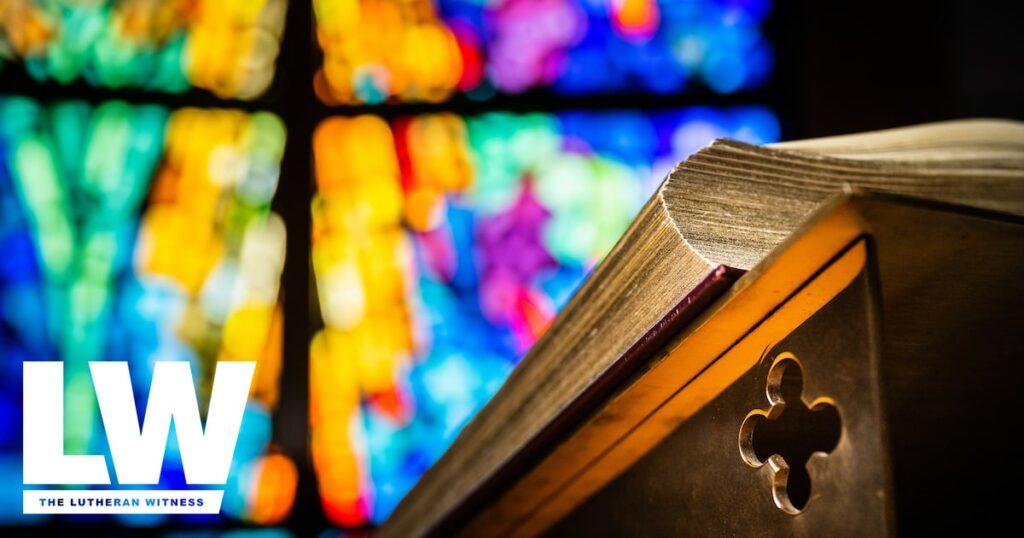by Matthew C. Harrison
The Bible teems with joyous, paradoxical truths. God is three in one. God is man. God dies on a cross. The God who visits His vengeance upon trespassers has mercy only on sinners. We die to live. We live to die. The sinner is righteous .The weak are strong. Saints are sinners. Sinners are saints. Afflictions are blessings. The word of man is the Word of God. The poor are rich, and the rich are poor. The first are last, the last first. Law and Gospel. It is a hallmark of Lutheranism that it does not, as a matter or principle, try to resolve these paradoxes. Is it bread, or is it body? The texts simply state that it is both. If salvation is God’s act alone, and faith is a result also of an eternal election to salvation (Ephesians 1), and god wants all to be saved, then why are not all saved? Must not God then have determined to condemn some from all eternity? No. The Bible says, “God wants all to be saved” (1 Timothy 2:4). Lutheranism lets the paradox stand. . . .
The maladies in the life of the twenty-first century church, and in the Church in every age for that matter, are the result of missing “the narrow way” (Matthew 7:13–14). It is for me a paradox itself, that the “high” road of orthodoxy—right teaching and right praise—is freeing! For ortho-dox-y is both right doc-trine and right dox-ology (or praise). It also leaves plenty of space for us to rejoice in God-pleasing differences of gifts, emphases, practices, and even personalities.
The Church is a paradox. She is the Bride of Christ, “spotless,” “holy,” “washed” (Ephesians 5:25–27), the “[pillar and foundation of truth” (1 Timothy 3:15), the body of Christ (1 Corinthians 12:1ff). And yet she only appears in this world hidden under the guise of poor sinners, flawed leaders tensions, divisions, and even false teaching. This is at once both disturbing and comforting. It is disturbing because we find ourselves in such “spotted” congregations, denominations, and Christendom. It is comforting because—despite its outward appearance, despite the fact that there have been times in the history of the church when the pure teaching of the Gospel all but disappeared from the public confession of the Church and its practice—nevertheless, the “gates of hell shall not prevail against it” (Matthew 16:18). The Church endures because Christ endures, and he will never let his Gospel go un-believed, until the end of time. That’s worth rejoicing over, especially in the times in which we live. And there is also comfort in knowing that because the Church exists well beyond the genuine Lutheran Church, we will also find truth spoken by others. And when we do, we are free to heartily and gladly acknowledge it as such. . . .
The secret of living a good news life in a bad news world is knowing that despite our manifold weaknesses and sins, precisely of Christians and the Church, Christ remains wherever, so far and so long as, Christ and his Word are heard and to the extent that true Baptism and the Lord’s Supper remain. That is the expansive joy of generous, faithful Lutheranism. Thus genuine Lutheranism is simply genuine Christianity. And Christianity, with all its manifold weaknesses and sins, is far broader than genuine Lutheranism. . . .




Brother Matthew: What a great introduction to the latest Lutheran Witness. You remind me of me! Can I have your permission to put this in our newsletter? Love you brother! Carl
Thanks for your passionate, articulate, and succinct expression of truth. A balm much needed for an aching church!